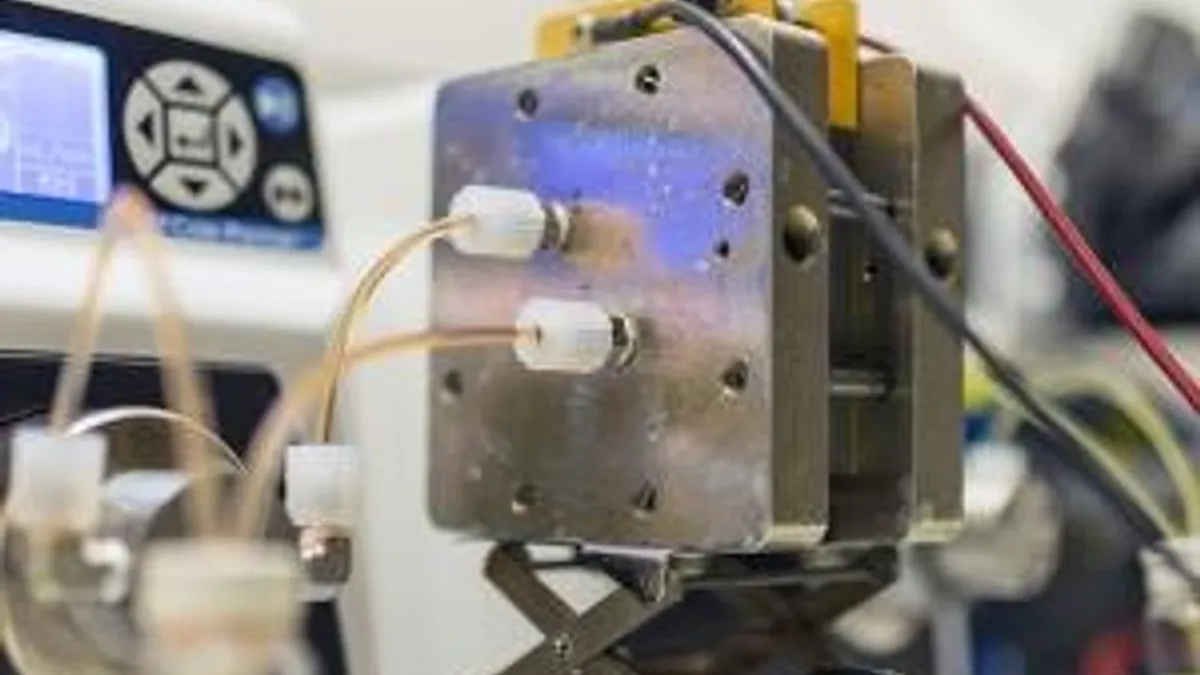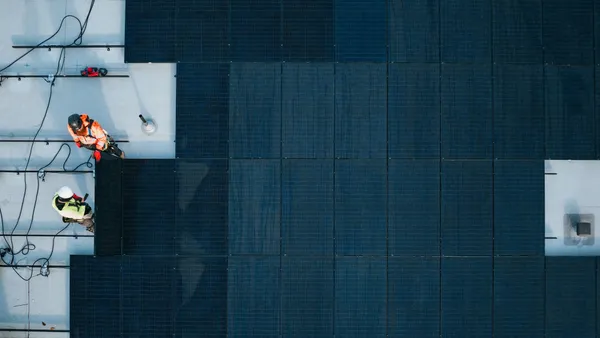Dive Brief:
-
Harvard researchers say they have developed a flow battery that can use a neutral, non-corrosive liquid, making the chemistry safer and cheaper.
-
In a paper in ACS Energy Letters the researchers say their aqueous organic and organometallic redox flow battery uses abundant elements and operates with a neutral pH or acidity-alkaline balance.
- The researchers say they were able to engineer a battery that loses only 1% of its capacity in 1,000 cycles, compared with lithium-ion batteries, which degrade much faster.
Dive Insight:
Lithium-ion batteries have the overwhelming majority of the energy storage market, but researchers are working on new chemistries they hope will help flow batteries gain significant market share.
Researchers are looking at a variety of substances, including variations on vitamin B2, in an effort to bring down costs by using readily available compounds and making the chemistry less corrosive and more environmentally benign.
Flow batteries store energy in liquid solutions in external tanks. The bigger the tank, the more energy they can store. That gives flow batteries the ability to scale easily, but after many charge-discharge cycles they require maintenance of the electrolyte to restore the capacity.
In their recent announcement, the Harvard researchers say they have modified the molecular structure of the positive and negative electrolyte solutions in order to make them water soluble.
One of the challenges the researchers addressed was finding the reason that viologen, the negative electrolyte, was decomposing so quickly. The team was able to tweak viologen’s molecular structure to make it more stable.
Next they looked at ferrocene for the positive electrolyte. Ferrocene is known for its electrochemical properties, but it is not water soluble. The team was able to turn ferrocene into a soluble molecule, creating “a whole new class of molecules for flow batteries.”
“Because we were able to dissolve the electrolytes in neutral water, this is a long-lasting battery that you could put in your basement,” Roy Gordon, a professor of chemistry and materials science at Harvard and one of the authors of the report, said in a statement. “If it spilled on the floor, it wouldn’t eat the concrete and since the medium is noncorrosive, you can use cheaper materials to build the components of the batteries, like the tanks and pumps.”













